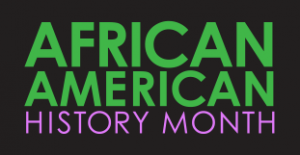
February is African American History Month The Library of Congress, National Archives and Records Administration, National Endowment for the Humanities, National Gallery of Art, National Park Service, Smithsonian Institution and United States Holocaust Memorial Museum join in paying tribute to the generations of African Americans who struggled with adversity to achieve full citizenship in American society. Read More »
Black History Month, also known as African-American History Month in the U.S., is an annual observance in Canada, Ireland, the Netherlands, the United Kingdom, and the United States. It began as a way for remembering important people and events in the history of the African diaspora. It is celebrated annually in the United States[6] and Canada[7] in February, as well as in the United Kingdom, the Netherlands and Republic of Ireland[8][9] in October.[5]
The precursor to Black History Month was created in 1926 in the United States, when historian Carter G. Woodson and the Association for the Study of Negro Life and Historyannounced the second week of February to be “Negro History Week”.[10] This week was chosen because it coincided with the birthday of Abraham Lincoln on February 12 and of Frederick Douglass on February 14, both of which dates black communities had celebrated together since the late 19th century.[10]
From the event’s initial phase, primary emphasis was placed on encouraging the coordinated teaching of the history of American blacks in the nation’s public schools. The first Negro History Week was met with a lukewarm response, gaining the cooperation of the Departments of Education of the states of North Carolina, Delaware, and West Virginia as well as the city school administrations of Baltimore and Washington, D.C..[11] Despite this far from universal acceptance, the event was regarded by Woodson as “one of the most fortunate steps ever taken by the Association”, and plans for a repeat of the event on an annual basis continued apace.[11]



